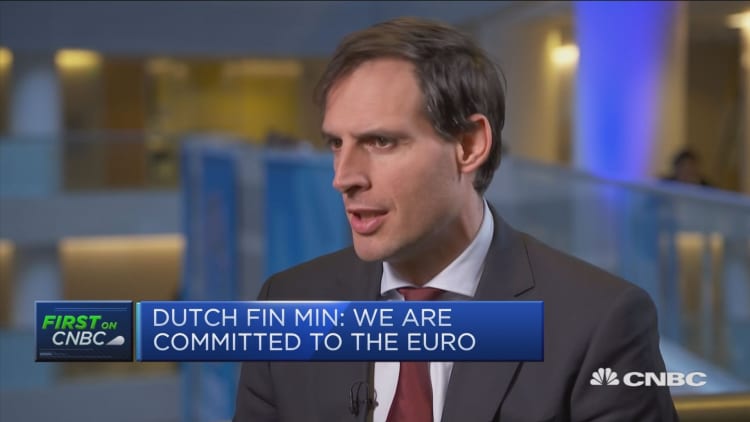
Euro zone reform needs to be done well rather than quickly, Dutch finance minister Wopke Hoekstra told CNBC on Thursday, despite calls from France to speed-up the integration process.
The Netherlands is one of the most conservative countries when it comes to euro zone reform. Generally speaking, euro countries that are in a healthier financial position are adverse to measures calling for further integration, fearing that they might have to intervene, diverting their taxpayers' money into struggling euro economies.
France has been the most vocal euro member pushing for further reforms and integration. But for the Dutch, moving too quickly could be risky.
"We are very much committed to the European Union and the euro and we would like to see a number of improvements and changes and reforms on these important topics, such as the banking union," Hoekstra told CNBC's Joumanna Bercetche at the World Bank and International Monetary Fund's Spring Meetings 2018 in Washington.
"But at the same time, it's much more important we do this in a right way and in a right form than doing it quickly," he added.
Euro zone leaders are due to agree on some measures at a meeting in June. One proposal is to transform the current European bailout fund, the European Stability Mechanism (ESM), into a something more similar to the IMF, with economic surveillance powers.
"We might be able to take the next step in June, but it might also take longer," Hoekstra said.
Finance ministers of eight European countries, including Ireland, the Netherlands and Finland, wrote a letter in March arguing that member states should focus on "implementing structural reforms" and "respecting" European fiscal rules — which stipulate ceilings for deficit and public debt — rather than promote changes at the European level.
This was a clear initiative to show that not every country will be willing to support France's President Emmanuel Macron without some guarantees.


